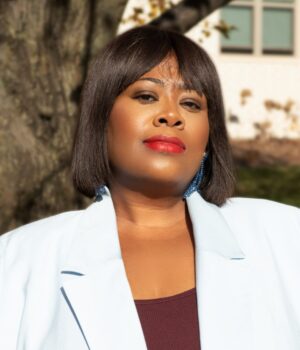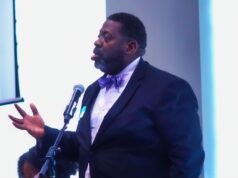As the founder of the Progress Center for Black Women, an elected Alder on Madison’s Common Council, a mother, a longtime community advocate for the empowerment of women and families, and the daughter of a domestic violence survivor, I feel compelled to address the recent allegations of domestic violence in our community.
I stand firmly in support of survivors of domestic violence, particularly with Michelle McKoy and Jamie Johnson who showed significant courage by recently sharing their stories of surviving abuse with Madison365. Feminist scholar bell hooks so beautifully states, “courage is the key to liberation”. We know that intimate partner violence often thrives in secrecy and silence, leaving victims to feel isolated and alone. By Michelle and Jamie speaking out, they broke that silence and also created space for other victims in our community to tell their stories and seek assistance in leaving their abusers.
While I cannot discuss specific individuals or allegations, it is crucial to acknowledge the seriousness of the issue and the systemic barriers that uphold and perpetuate violence against women. hooks makes clear the importance of community action, stating, “There can be no transformation of our culture of violence without the participation of the community.” It’s important that we as leaders and folks across this community move beyond platitudes and rhetoric and take real steps to provide support and community care to victims while also holding perpetrators of intimate partner violence accountable. Community leaders and other elected leaders must join me in speaking out in support of domestic violence survivors, including showing our support for Michelle and Jamie. It is our duty.
In my leadership over the years, I’ve been very intentional about sharing personal experiences as it allows us to understand and connect on a deeper level. Michelle and Jamie telling their stories of surviving abuse helped me to share how I grew up in a home where domestic violence was essentially normalized. Here’s some of what I shared, edited for clarity and brevity:
“I’m not sure how old I was when I first witnessed an act of domestic violence towards a family member. Violence was so common in my childhood that even the reaction to it was just a way of life. Maybe it was when the “fun uncle (a family member’s boyfriend)” threw my family member across the room and her small frame hit the wall hard across the room? Was it when another loved one was punched so hard in the face that for weeks we were afraid she was going to die from the abuse? Was it when my brothers and I tried to fight an abuser after he hit our mama in the face with a gun because we believed he was going to kill her?
For years I locked the abuse I witnessed as a child somewhere in my body. Then one night the devil who tormented my family chased me in my sleep. For years those nightmares would happen periodically, always him chasing us, sometimes we’d escape, sometimes he’d reach us and I’d wake up in fear and thankful it was just another nightmare.
I’m not sure when I knew I needed to go to therapy to address the nightmares. When I did start seeing a therapist though, she told me that the anxiety, being hyper-alert, the nightmares, and more were PTSD related to the childhood trauma I experienced. The effects of abuse can be physical, mental, emotional, and spiritual. The effects of domestic violence on the body, the mind, and the spirit are heavy.”
It is crucial that abusers are held accountable and that we center the voices and experiences of survivors in the community’s attempts to address domestic violence. As hooks writes, “To be a survivor is to understand that you can make it, that you are not alone.” We must uplift survivors’ stories, advocate for their rights, support agencies that provide care to victims of abuse, and create communities where violence is not tolerated.
If you or someone you know needs help, there are several resources both locally and nationally that you can reach out to, including, but not limited to:
- DAIS: (608) 251-4445
- DAIS text line: (608) 420-4638
- UNIDOS La Red: 1-800-510-9195
- National Domestic Violence Hotline: 1-800-799-7233
- National Domestic Violence Hotline: Text “START” to 88788
- Rape Crisis Center: (608) 251-7273
- End Domestic Abuse Wisconsin: “Get Help”
- The African Center for Community Development: “Safe-Care Outreach”
- Freedom, Inc: “Our Services”
Referenced: hooks, bell. “Chapter 17. Violence in Intimate Relationships: A Feminist Perspective.” Gender Violence, 3rd Edition.
In community,
Sabrina Madison




























